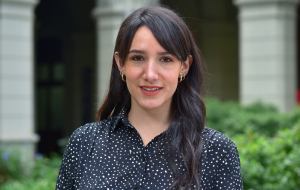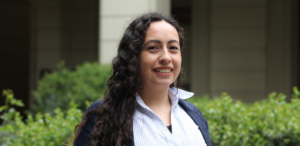
Mobility Protocol
To ensure the safety of our students, a Mobility Protocol has been established, which every UC student must comply with before starting their mobility program. This consists of sending the following documents at least two weeks before your trip.
- Signed declaration: student declares to know and adhere to all the rules, protocols and measures related to UC Global Mobility. The form to be completed will be given directly to the students once they are accepted by the host institution.
- Health and travel insurance: must mandatorily include medical repatriation, cover at least 30,000 EUR or equivalent, and must have a duration equal to the entire period that the student is outside of Chile.
- Passport and Visa: no student can travel without processing their visa/residence permit in Chile. The only exception is for students who have a valid passport of the nationality of the place where they are traveling or, if going to Europe, a passport from a European Union country.
- Tickets: round trip for exchange students (one-way only for double degree programs).
Passport and Visa for UC Individuals
If you are a member of the UC community (undergraduate, graduate or doctoral student; academic, professional, postdoctoral), check the details to obtain your passport and visa to carry out your mobility abroad.
Passport
The passport is an official document issued by a government authority that certifies the identity and nationality of the document holder, enabling them to travel under the protection of said government to other countries.
In the case of Chileans, those traveling abroad must have a passport to leave the country, unless they are going to Argentina, Uruguay, Paraguay, Brazil, Colombia, Ecuador, Peru, Bolivia, in which case they only need their valid national identity card in good condition. However, if the flight to one of these destinations makes a stopover in another country that requires a passport for entry, such as Panama, it is necessary to travel with a passport.
Some countries require that, at the time of travel, the passport has a validity of at least 6 months before its expiration. However, we suggest that the passport be valid at least for the entire period of the stay abroad.
Visas
For the vast majority of countries, it is necessary to apply for a Visa or residence permit depending on the reason for the trip (work, study, training or others). We recommend taking the following into consideration:
- The visa application can only be submitted once an acceptance letter from the destination university or institution is received.
- From the Accompaniment Coordination, we are willing to help and guide with any doubts that may arise regarding the visa application process, however, the processing is the responsibility of the visa applicant.
- In this Airtable, you can review the details of the process for each country. The information contained here is strictly for reference and is provided in order to facilitate the application process for visas/permits as appropriate. Official information should always be corroborated with the relevant foreign body (embassies, consulates, immigration websites, etc).
If there were any inconsistency between this information and the official information of the country, we would appreciate being informed at intercambios@uc.cl with all the details so that we can verify and update as appropriate.
Process by Country
Budget for Stay Abroad
For your stay abroad, we provide some reference values to calculate the cost of living in another country. It is also recommended to check websites dedicated to calculating living costs for more details.
Elements to Consider in a Budget
- Passport (only if you don't have one).
- Visa/permit process to study.
- Airline ticket.
- Health insurance.
- Accommodation.
- Meals.
- Daily transportation.
- Toiletries.
- Stationery items.
- Laundry.
- Medicines.
- Leisure and entertainment
Links of Interest
Ticket Purchase for UC Members
Check out some tips for buying your tickets to your international destination. You can get quotes from different ticket sales portals or directly with airlines; however, we strongly advise against buying airline tickets before obtaining the relevant visa/permit.
Student Discount Opportunities
IOM tickets in agreement with ANID
The International Organization for Migration (IOM) has a program through which reduced airfares can be accessed.
Currently, only doctoral students with an ANID National Doctoral Scholarship who request the complementary benefit to said scholarship for Doctoral Internships abroad can access this program in order to receive the benefit of round-trip tickets to the city where they will carry out the internship.
More information at this link.
International Discount Cards
This is an international card recognized by UNESCO through which it is possible to access discounts on tickets, accommodation, tours, and other services. It is valid for one year (renewable) and to obtain it, you must meet the requirements relevant to each card. It is possible to obtain it by contacting one of the issuing agencies.
The available cards depending on the user are:
- International Student Identity Card - ISIC for any student over 12 years old.
- International Youth Travel Card - IYTC for young people under 30 years old (whether they study or not).
- International Teacher Identity Card - ITIC for teachers.
Downloadable Documents
Accommodation Abroad for UC Members
If you are part of the UC community and will travel abroad, find out here some recommendations and accommodation options
Where Can I Stay During My Stay Abroad?
Accommodation options depend on the destination city/university. These are the most common alternatives:
- Dorms: they are part of the university itself and can be located within the same campus or very close by. Generally, you can opt for individual or shared rooms, with shared common areas.
- Student residences: in university cities, this type of external accommodation offer usually exists. Generally, you can opt for individual rooms with private or shared bathroom and kitchen in common areas.
- Host families: you stay with a local family. Generally, it's an individual or shared room and includes some meals.
- Shared apartment: check the notices that may be in places where information is shared.
In the case of academics, whether they make a trip as a temporary visitor for a short period or need to move for a medium or long term, it is recommended to have a temporary residence arranged before arrival to have a concrete place to arrive, while getting to know the different possibilities offered by the destination city.
How Can I Find Accommodation?
Generally, once you are accepted at the university where the international mobility will take place, they will send information about accommodation, whether they offer it within their campus or not.
If they don't, the recommendation is to write to them to ask for suggestions or contact people who have previously gone to the same city/university.
Some recommended sites are:
UC Accompaniment Coordination
Before beginning the journey, there are several elements that should be taken into consideration. At the UC Support Coordination, we strive to provide all the tools that help face these new challenges in the most prepared way possible.
You can contact the Accompaniment Manager of the region where you will carry out your mobility, who will guide you and inform you in detail about the next steps of the process.
Contact

María BeléN Saavedra
Support Manager - USA, Canada, Ireland & United Kingdom

ÚRsula Godoy
Support Manager - Europe (except Spain, Portugal, and United Kingdom), Africa, and Middle East

Magdalena Cartagena
Support Manager - Ibero-America